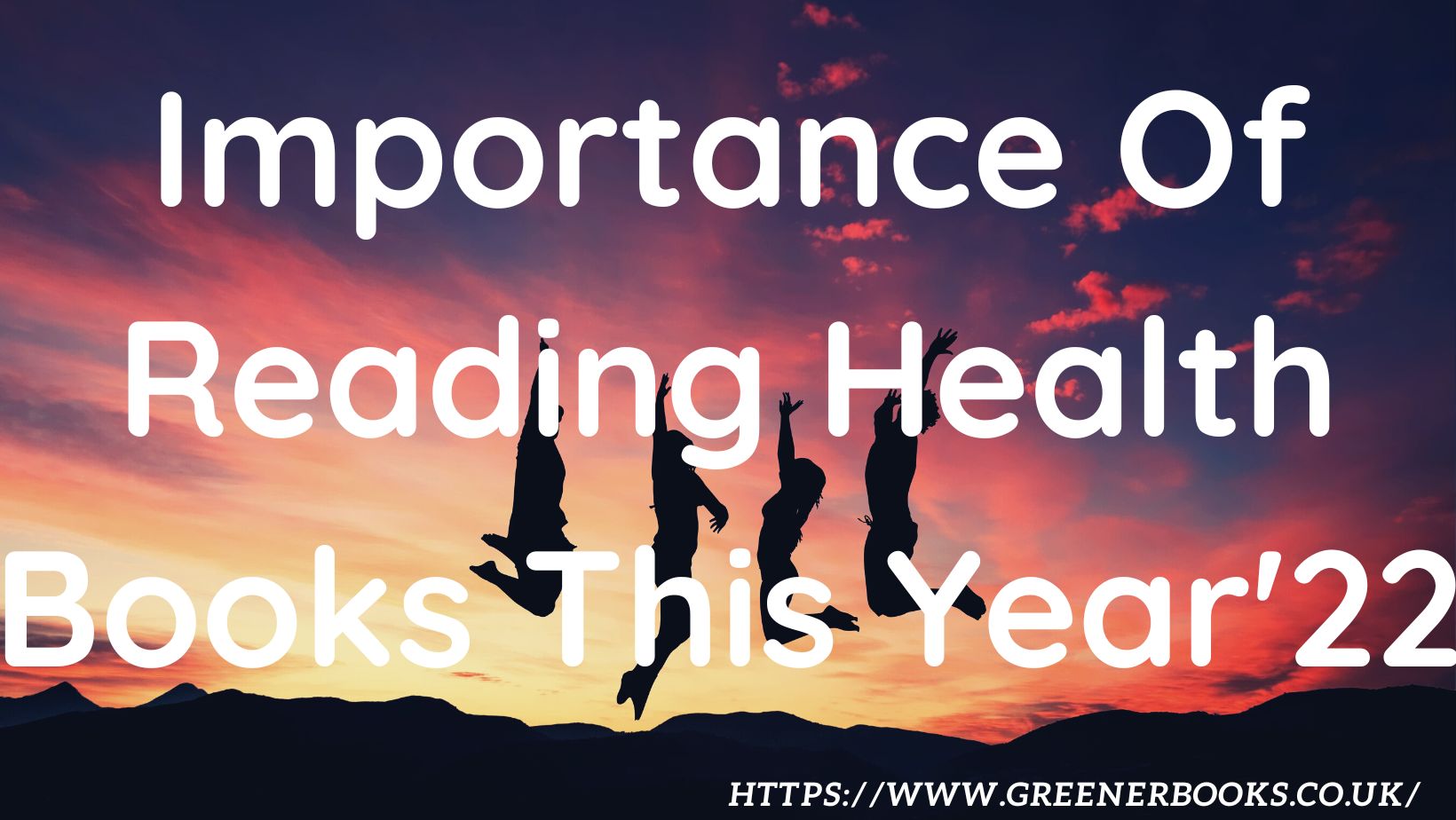We use cookies to make your experience better. To comply with the new e-Privacy directive, we need to ask for your consent to set the cookies. Learn more.
Importance Of Reading Health Books This Year'22


Importance Of Reading Health Books This Year'22
Reading is a reward for most people. But, on the other hand, reading health books and second-hand books in the UK has been shown to have various benefits, ranging from a longer life to tremendous career success if you're seeking reasons to pick up a book. Reading has five scientifically proven benefits for your health, relationships, and happiness.
1. Stress Is Reduced By Reading-
In today's environment, stress is a common occurrence. But, according to a study by the University of Sussex, six minutes of silent reading can reduce stress levels by 68%. In addition, reading is more effective and faster than other approaches such as listening to music, taking a walk, or relaxing with a cup of tea.
Reading has a powerful stress-relieving effect for a variety of reasons. Reading, for starters, allows the mind to focus and concentrate on the words, drawing the reader's attention away from worrying thoughts. In addition, reading has the effect of suspending disbelief.
When we read, we move into another world and experience an altered level of consciousness, relieving muscular and heart tension. The type of book you are reading has no bearing on the soothing impact it produces if you can immerse yourself in the story.
2. Wellness Is Promoted By Reading-
A book a week can keep the grim reaper at bay, just as an apple a day can keep the doctor away. Moreover, reading has the unintended benefit of extending your life.
According to a 2016 study published in the journal social science & medicine, reading for at least 30 minutes a day increased participants' longevity by two years on average, with book readers who read more than three hours per week having an advantage over those who read magazines and newspapers.
People who read books regularly are more content with life, happier, and more likely to believe that the things they do in life are valuable, according to Booktrust, the UK's largest reading charity.
Reading self-help books or being read can help people recover from mild to severe depression. While readers cannot replace the services of psychologists and therapists, bibliotherapy can be as successful as routine medical care in treating mild depression.
Reading Well, a UK-based organisation, contains a list of book titles and evidence-based booklists that medical experts have endorsed to promote health and wellness.
3. Reading Can Aid In The Treatment Of Alzheimer's And Dementia-
Reading is a brain workout, and keeping your mind busy can help you maintain your mental health later in life.
Alzheimer's disease is two and a half times less likely to develop in elderly individuals who read books or play mentally tricky games. Reading has also been connected to a lower risk of dementia.
In addition, the study discovered that whether participants started reading or other mentally stimulating hobbies early or late in life, they saw a slower rate of decline in both cases, indicating that it's never too late to pick up a book.
4. Sleep Is Helped By Reading-
Reading before bed can aid you in sleeping better, especially if you make it a nightly practice. There are several reasons why reading before bed is beneficial to your sleep patterns. The fundamental reason is that reading reduces stress, anxiety, and physical tension. Helping you relax and unwind before bed can make a big difference in your ability to push worrying thoughts aside and fall asleep.
Another factor is that your mind associates bed and reading with sleep because of the frequent practice. It's crucial not to mix up your behaviours to achieve this.
Backlit screen gadgets can interrupt the creation of melatonin, and browsing the internet or scrolling through email and social media on your phone can keep your mind alert and active, so replace your smartphone or tablet with a paperback book or eReader.
5. Relationships Are Improved By Reading-
Reading indirectly improves our relationships by increasing empathy, which is necessary for effective and enjoyable partnerships. Despite the clichés of the isolated bookworm, studies have shown a correlation between reading literary fiction and understanding others' emotions and thoughts, improved social skills, and the ability to relate to others who live lives different from ours.
The brain doesn't distinguish between reading about an experience and experiencing it; the same areas are active in both cases. Reading literary fiction creates a virtual reality that allows us to share characters' emotions and thoughts. Literary fiction serves as a bridge to better understanding other individuals and drastically different perspectives from our own.
Conclusion
Reading doesn't have to be an expensive habit. There are many great classics available for free if you're okay with reading on a tablet or computer screen, and there are some great free library or low-cost subscription and book group services to gain access to a range of great books.




